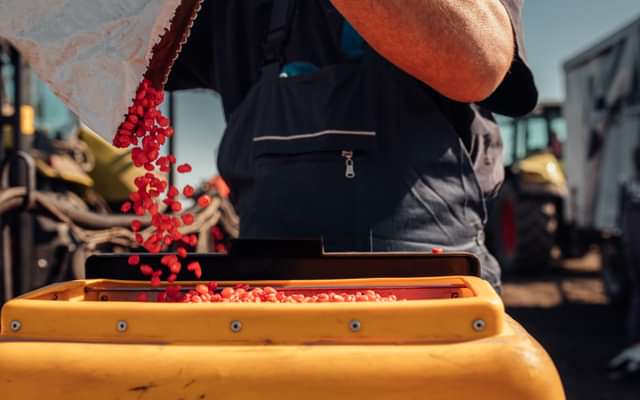Plant Independent Seed, Harvest Independence

This article was originally published at Forbes.com
For many outside rural America, the modern farmer’s portrait is one of independence personified: Working the land, dirt under the fingernails, raising and tending to livestock, feeding and fueling the world.
There are many accurate details in this archetype, to be sure.
But talk with just about anyone who farms and you’ll begin to notice at least a few holes in such an idealized narrative of boundless liberty.

You will also learn that one of the biggest challenges to a farmer’s independence—and, frankly, the future viability of the family farm—is the consolidation of seed companies within the agricultural industry over the past couple of decades.
Challenges with Consolidation in the Seed Market
Today a small handful of companies control the lion’s share of the U.S. seed market. So how does that impact farmers?
For one, growers all too often find themselves with fewer choices when selecting the right genetics, traits and technology for their operation.
This is true for seeds, but it also applies to crop protection inputs. The traited hybrids and varieties you plant will ultimately dictate which chemicals you spray over the top of your crops.
Meanwhile, seed costs have risen dramatically over the past several decades. Commodity markets look healthy right now, but growers have all too often faced shrinking margins against a backdrop of historically depressed prices and a constant push to achieve greater yields. With less competition in the seed market, prices are only likely to remain high or continue going up.
Independent Seed Companies Offer a Real Solution
At Paulsen, we’ve been privileged to work with several independent companies within the ag inputs space that offer a compelling alternative to this consolidated marketplace for seed. Here are three critical assets independent seed companies bring to the market:
Localized knowledge
As is true with many other industries, one of the most significant advantages to working with an independent supplier or retailer is the local knowledge and insight you can expect.

Because most independent seed companies already have boots on the ground and, generally speaking, more of a regional focus, you’ll enjoy the personalized service they’re able to offer.
Sales reps and agronomists are more likely to have firsthand knowledge of the climate, soil types, pest pressure and other environmental conditions unique to your operation. The same goes for the R&D side of the equation when considering breeding and selection strategies.
This is not to say that larger retailers can’t replicate this model—many, if not most, strive to do so—but independent seed companies are simply positioned better to deliver local knowledge, service and support.
Farmer influence
Independent seed companies are just that—independent.
Because a majority of independent companies answer less to investors, they are more likely to listen to the concerns of actual growers.
The result is a greater overall influence on the company’s operational decisions, from genetics and trait packages to pricing and distribution models.
Farmers benefit from playing a role in seed company decision-making because they will ultimately be able to purchase a product that is attentive to specific needs on their operation.
Plus, this sort of cooperative model fits nicely into the narrative and lived experience of most farmers across the country.

Cost-effectiveness
We considered using the word “affordability” here, but it’s difficult to describe just about any seed product on today’s market that way. Farmers can benefit, however, from the cost-effective possibilities presented by independent seed companies.
Their business model is typically conducive to smaller overhead. Plus, they have not needed to invest anywhere near the resources on mergers or acquisitions.
All of this helps independent seed companies keep their costs down and pass these savings on to growers, supporting their bottom line and building customer loyalty.

Supporting Independent Seed Companies
The best way for independent seed companies to thrive is to know and fully embrace their inherent strengths. As we’ve outlined above, we see significant value propositions they offer to their potential customers, and these need to be celebrated and reinforced at every turn.
Many independent seed companies possess certain assets—localized knowledge, a more responsive business model and sleeker finances—that set them up for success, even in a market seemingly dominated by its largest players.
And when they thrive, we all harvest the benefits.